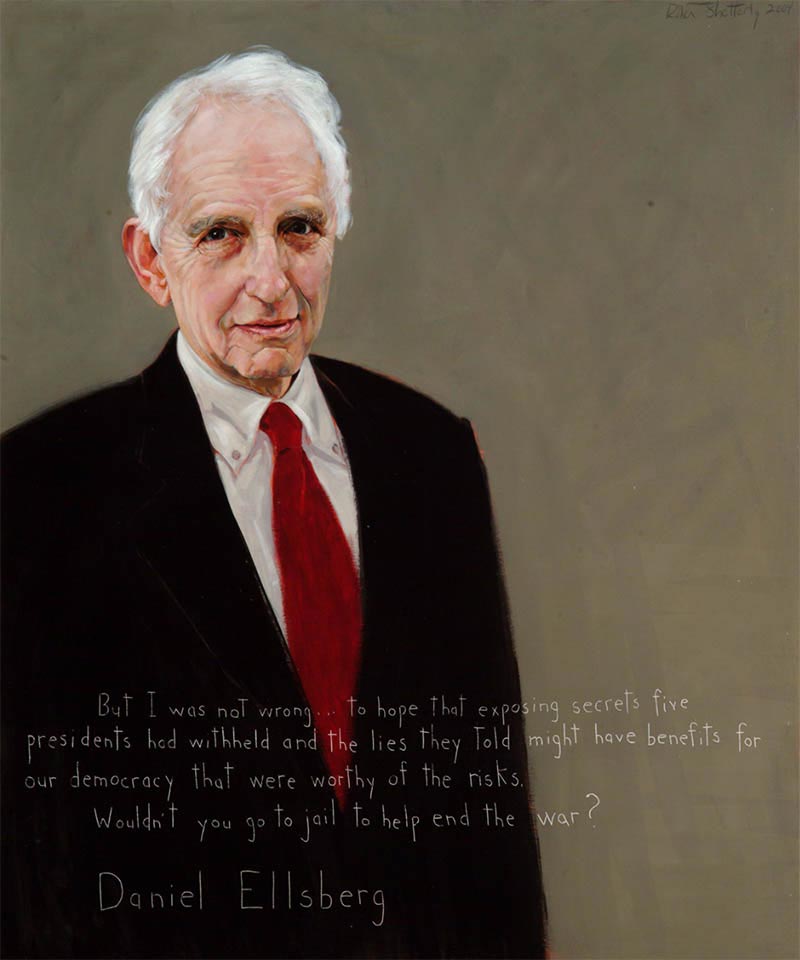
Daniel Ellsberg
Political analyst, Anti-nuclear activist : 1931-2023
“But I was not wrong to hope that exposing secrets five presidents had withheld and the lies they told might have benefits for our democracy that were worthy of the risks. Wouldn’t you go to jail to help end the war?”
Biography
Ellsberg, born in Chicago, graduated summa cum laude from Harvard in 1952 with a degree in economics. After three years in the U.S. Marine Corps, where he served as a rifle corps commander, he returned to Harvard to earn his Ph.D. in economics.
From 1959 through 1971, the economist worked as a strategic analyst for the RAND Corporation; as a consultant for, and then special assistant in the Department of Defense; and for the State Department at the U.S. Embassy in Saigon. Beginning in 1969, while working again for the RAND Corporation, he privately photocopied a 7,000-page top secret study of America’s intentions in Vietnam. Driven “by an urgent sense that [President] Nixon was about to escalate the war,” Ellsberg gave the documents (known as the Pentagon Papers) to the Senate Foreign Relations Committee in 1969 and, two years later, to the New York Times, Washington Post, and 17 other newspapers. He explained that he did this in order “to reveal patterns of official deception.”
After going underground for a brief period, Ellsberg was arrested and held for trial. The charges were dismissed, however, when it was learned that burglars working for the White House had broken into his psychiatrist’s office, looking for evidence to use against him.
Secrets (2002) is Ellsberg’s “memoir of Vietnam and the Pentagon Papers.” Since the end of the Vietnam War, he says, “probably my main activity has been anti-nuclear lecturing, writing, and activism. I’ve been arrested between 60-70 times in that connection.” In the early 1990s he also worked for three years with Physicians for Social Responsibility, lobbying to end the nuclear arms race. In July 2004, Ellsberg announced The Truth-Telling Project, his call for White House, Pentagon, and other federal employees to come forward and expose government lies and cover-ups. Accused by some of treason, he responds, “We live in a country, thank God, where telling the truth to Congress is not treason.” A person who sees what he did as treason, he says, “in my judgment does not understand the founding principles of this country very well.”
Related News
Programs
Americans Who Tell the Truth (AWTT) offers a variety of ways to engage with its portraits and portrait subjects. Host an exhibit, use our free lesson plans and educational programs, or engage with a member of the AWTT team or portrait subjects.

Education
AWTT has educational materials and lesson plans that ask students to grapple with truth, justice, and freedom.

Exhibits & Community Engagement
AWTT encourages community engagement programs and exhibits accompanied by public events that stimulate dialogue around citizenship, education, and activism.